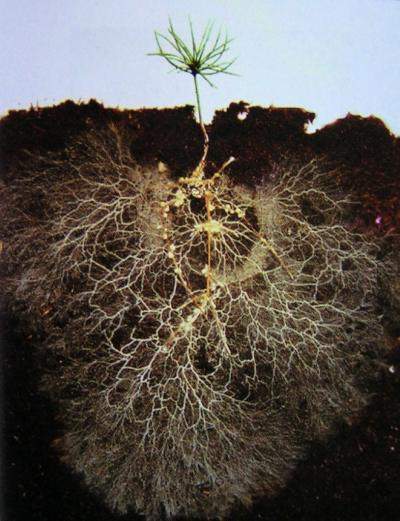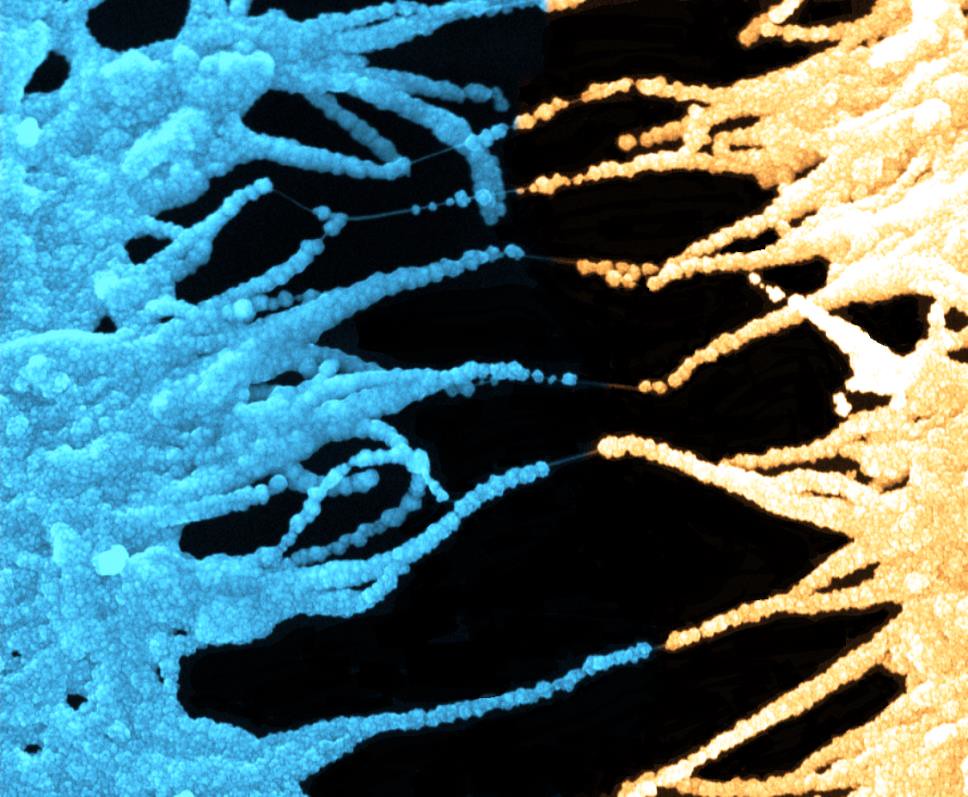By: Cameron Garrett
Not sure.
But let me tell you about a word I like.
(Please endure me telling you about a word I like).
The word is “tenuous.” Tenuous is a good word and I am prepared to defend its goodness. Google claims that tenuous means “very weak or slight.” This definition is bad, an affront to the goodness of the word.
Here is why Google’s definition is both inadequate and incorrect. In its modern usage, tenuousness always describes the quality of a connection, a relationship, a bond born out of the world. Google intuits this. Immediately below the bad definition, Google provides its requisite contextualizing example of tenuous in a sentence: “The tenuous link between interest rates and investment.”
Tenuousness describes the link.
Google offers another contextualizing example of tenuous in a sentence by recommending the one given on the Cambridge Dictionary’s website: “The police have only found a tenuous connection between the two robberies.”
Tenuousness describes the connection.
And there is finally the contextualizing example of tenuous in a sentence given by the online presence of the Mirriam-Webster Dictionary, who just yoinked a sentence from Albert Hourani’s 1991 book Islam in European Thought: “After the end of the crusading period, however relations between East and West had grown tenuous.”
Tenuousness describes the relationship.
In sum, if someone uses the word tenuous, it is almost certainly the case that they are describing the quality of a connection between things. Google knows this (!) And yet, Google lazily defines tenuousness as mere weakness or mere slightness. I am indignant. I will not stand for it.
The incorrectness and inadequacy of Google’s definition is that it suggests that tenuous is a word that describes the meaning of a thing causa sui, in and of itself. This is wrong. We know, and Google’s all-knowing algorithm knows, that tenuousness does not describe a noun as being “very weak or slight” in and of itself. Tenuousness, rather, describes relatedness: the weakness or slightness of a person, place, or thing’s connection to some-thing. This connection does not necessarily need to be to something else. I am perfectly capable of having a tenuous relationship to some aspect of the nexus of relationships that form my-self. For example, my relationship to the faith that motivated me to go to seminary three years ago is tenuous.
(And this is okay. Not only is this okay – it is curious. It begs a few questions. Like:
- What sort of faith was that faith?
- Would the numerous costs of seminary have been worth it if my faith hadn’t changed in some way?
- What exactly is faith if it is subject to change?
- Is faith more like an object one has – as in, I have or I don’t have faith – or is it more like a process one undergoes?
- Is faith better for being static or dynamic?
- Is faith something that remains constant in a person’s life even if it is dynamic, processual, and subject to change?
- Is being a person of faith something that we can choose?
- What is faith’s relationship to worship?
- And finally, how do our answers to these questions reveal our values?)
I digress.
We return to the goodness of the word tenuous. The goodness of the word is that it points to something of a fundamental truth: that nothing has meaning in and of itself. Meaning does not exist in a vacuum. We cannot describe something as weak if we do not know weakness’s relationship to strength. Relationship is the raw material not only of the word tenuous, but also of story and storytelling generally. Our story-born meanings bloom out of the mycelium of relationship. To describe something as tenuous is to nonchalantly gesture, as if with a shrug and a cigarette waving hand, at the dynamic interrelatedness of all beings and all meanings who have existence in the world. It is also additionally a fun word to say with the mouth, tenuous.

If there is a point to be made from all of this, some foundational reason for all of my gesticulating, it has not come to me yet, not with work still to be done regarding a certain very good word indeed. Tenuous is derived from the Proto-Indo-European root ten – “to stretch” – and the suffix ous – meaning “having, full of, having to do with, doing, inclined to.” Therefore, the word’s basic construction suggests that a more appropriate definition than “very weak or slight” might be something along the lines of, “a relationship that is or has been stretched.”
This definition calls to my mind chewing gum. The unbroken wholeness of a piece of gum is threatened upon mastication. While being chewed, the gum’s once uniform solidity and consistency unravels. It becomes an amorphous blob that is pushed and pulled and stretched with the rhythm of the mouth chewing. To blow a bubble, one gathers the (once) flavorful blob up onto the tip of the tongue. Imagine it. Then one spreads the blob over the tongue, like a fitted sheet, by pushing the gum covered tongue through the teeth. Finally, one purses one’s lips and breathes into the gum the breath of life as God once did into Adam, and the bubble is born. The gum’s relationship to itself is tenuous at the point in the expansion of the bubble where its paradigmatically pink surface has been stretched thin, but has yet to burst.

Here perhaps is the point: To be a person is to sometimes feel like a piece of gum being chewed in the mouth of God. To be a person is to inhabit a certain tenuousness.
In our time and in our place, there is ample and growing evidence of the tenuousness of the human situation. Our relationship to the planet in which we live and breathe and have our being can be described as tenuous at best. Our relationships to each other, bone of our bones, flesh of each other’s flesh, is, and may have always been, tenuous. If you are at all like me, your relationship to yourself might be considered a tenuous proposition on a day to day basis. We do well to remember that every person born bares the burden of living beneath the weight of gravity.
So, what does it mean to be a person of faith in a violent world seemingly ready to burst? Not sure. But I think it might have something to do with running head-first into the tenuousness of it all. There are plenty of folks, more than a handful of folks, who have survived that collision. They are known by the name “survivor” and they are evidenced by their surviving. They are flesh and blood people who have experienced the tenuousness of the human condition by surviving inexplicable realities like abuse and addiction and self-hatred and the unspeakable traumas of war.
And many of these people, more than a bundle of people, quietly witness to a peculiar, persistent hope. Of this hope, they say that it beats a song in tune with the wounded human heart. Of this song, they say that it sings that even if our bubble bursts, it will collapse back into itself like a piece of chewing gum, and ultimately cohere in the place that we know in our bones is called belonging.
In conclusion, permit me a platitude. (Please endure a platitude):
We all belong in this place. We all belong to each other. Faith, it’s content and it’s movement, has something to do with the simplicity and brutality and beauty of these humble facts.
Blog post written in tenuous fulfillment of the requirements of Dr. Jennifer Ayres' course "Be(com)ing Christian: Theology, Education, and Public Life," offered at Candler School of Theology in the fall of 2020. Blog post inspired by questions posed in Mai Anh-Le Tran's book, Reset The Heart: Unlearning Violence, Relearning Hope. Those questions are: "What does it mean to be a person of faith in a violent world? What does it even mean to 'have faith' in this world that is so violent?" (10). Source for blog's key image that is demonstrative of tenuousness: "Tenuous Links" by Argonne National Laboratory is licensed under CC BY-NC-SA 2.0





1 Comment
Add Yours →Let me add one affirmation and perhaps one caution, tenuously… (1) To say that a relationship between two things/objects/persons/spirits is tenuous is to say that it might be otherwise. It might be restored just like it was, it might be strengthened, it might be renewed, it might be severed. But to say it’s tenuous is to say that there is meant to be a relationship, here, and it’s my responsibility to look for it. (2) The caution: Although I will grant your grumpiness about “weak” as a bad synonym for tenuous, I do feel there is a fragility there, and propose that perhaps a Christian’s tenuous relationship to a violent/racist/hurting world might mean that we are not relating *enough* to that world.